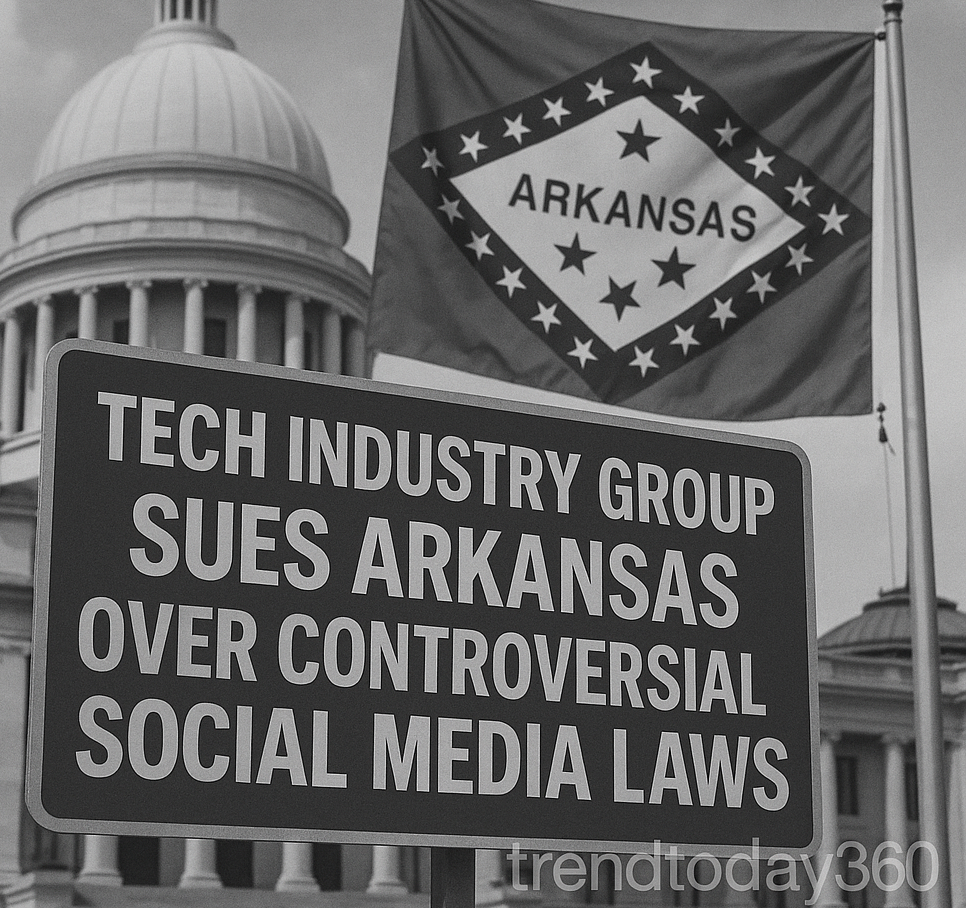A major legal battle is unfolding in Arkansas as NetChoice, a prominent tech industry group, filed a federal lawsuit against the state’s new social media laws. Filed in Fayetteville, the suit challenges two newly enacted laws that NetChoice claims are vague, overreaching, and unconstitutional.
The group represents major platforms such as TikTok, Meta (Facebook’s parent company), and X (formerly Twitter). These companies argue that the laws infringe on free speech, lack clear enforcement standards, and unfairly target social media companies with broad, undefined obligations.
Background: Arkansas social Doubles Down Despite Prior Rulings
Earlier this year, Arkansas Governor Sarah Huckabee Sanders signed new legislation aimed at curbing the harmful influence of social media on young users. This move came just months after a federal judge struck down a similar law from 2023 that required parental consent before minors could create social media accounts.
Despite that setback, Arkansas legislators pressed forward. NetChoice claims the state’s decision to move ahead shows blatant disregard for constitutional limits. In its filing, the group stated that Arkansas chose to “double down on its overreach” instead of learning from the court’s prior rejection.
Key Provisions in Question about Arkansas social
The lawsuit targets two main components of the new legislation. The first restricts platforms from using any design, algorithm, or feature that a company “knows or should have known” may lead a user to self-harm, suicide, drug use, eating disorders, or platform addiction.
The second law allows parents to sue platforms if their children have attempted or died by suicide after exposure to harmful content online. If found liable, companies could face civil penalties of up to $10,000 for each violation.
NetChoice warns that Arkansas lawmakers wrote the law in vague, overly broad language that could criminalize content without clear guidelines. In its lawsuit, the group directly questions whether songs like “Because I Got High” by Afroman would fall under the ban simply for mentioning drug use.. It warns that the law could affect not only minors but also adult users due to its sweeping restrictions.
Targeting Notifications and Algorithmic Design
Another part of the new Arkansas legislation bans social media platforms from sending notifications to minors between 10 p.m. and 6 a.m. It also instructs platforms to avoid “evoking addictive or compulsive behavior” through their design and content.
NetChoice asserts that the state has failed to define what constitutes “addictive behavior” and offers no guidance on compliance. The lawsuit asks: “What is ‘addictive’ to one teen may not be for another. Does letting teens share selfies qualify as harmful?”
Legal Landscape and Broader Implications
Arkansas is not alone in targeting social media. States like Florida and Georgia have also passed similar laws, many of which have already been blocked by federal courts. In March, a judge struck down Arkansas’ earlier age-verification requirement, siding with NetChoice’s argument that it violated constitutional rights.
The latest legal challenge underscores growing tensions between state governments and tech companies over how to regulate online content and protect minors. Advocates for the law argue it is a necessary response to a growing mental health crisis. However, industry leaders say the solution must balance safety with freedom of speech and innovation.
A spokesperson for Arkansas Attorney General Tim Griffin acknowledged receipt of the complaint and stated that the office “looks forward to defending the law.” However, no formal response has yet been filed.
Conclusion: A Fight That May Shape Digital Law
This Arkansas social media law lawsuit could set a precedent for future tech regulation across the United States. The legal clash raises urgent questions about where government regulation ends and corporate responsibility begins.
While concerns about online harm are real, critics argue that vague, overbroad laws like Arkansas’ risk doing more harm than good. As this case proceeds through the courts, tech companies and state legislatures across the nation will be watching closely.
Updated By TrendToday360







Leave a Reply